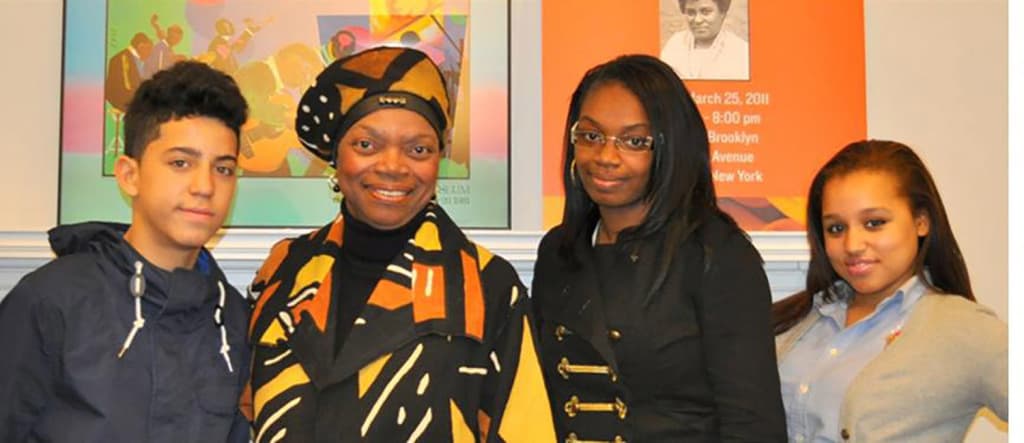Ashley was 9 years old on a bus to visit her father in an upstate correctional facility. She was making the 9 hour ride all by herself.

When she finally arrived – eager to see her daddy – the facility informed her that the visitation schedule had changed. Ashley was sent back to the bus station, unable to spend precious time with her loved one.
In March 2013, Governor Andrew Cuomo and Brian Fischer, Commissioner of the Department of Corrections and Community Supervisions (DOCCS) released a handbook for friends and families of incarcerated individuals.
The 67-page handout outlines a variety of procedures. On page 10, the document states, “Visitation by family and friends is encouraged and can be a positive influence during an offender’s time in prison.” It continues, “Research has shown that an offender who receives regular visitation adjusts much better once he or she is released from prison when the privilege is used to maintain a positive relationship.”
DOCCS places great emphasis on maintaining “positive” relationships while incarcerated for two main reasons. Positive relationships outside correctional facilities encourage inmates to rehabilitate their lives and harbor stable relationships to return to once time has been served.
Speaks to Velmanette
At a chance meeting, Ashley was able to tell her story to NY State Senator Velmanette Montgomery. The Senator set out to pass legislation to protect Ashley and others like her.
On August 11, 2014, Ashley’s Law (S.1413) was signed into legislation. The law requires that correctional facilities to keep up-to-date visitation schedules that cannot turn away visitors such as Ashley. In a press release from Senator Montgomery’s office she states that “Ashley’s Law strengthens family ties between New Yorkers who are incarcerated and their loved ones on the ‘outside.’ ”
In addition, Montgomery is also working on the Proximity Bill – or April’s Law. The bill, if signed, will amend the correction law, to requiring DOCCS to place incarcerated parents at correctional institutions and facilities closest to their children’s home.
April, much like Ashley, has an incarcerated parent several hours away, making visitation infrequent and difficult. April also spoke with the senator, and requested help. The Proximity Bill (S.2341/A.7191)would make visitation for April and her family more accessible.
Many children involved
More than 100,000 children in New York State have a parent in a correctional facility. “Experts in the field of criminal justice generally agree that in the vast majority of cases, children who have a parent in prison benefit from being able to have personal contact and communication with them. Children and parents have indicated how important it is that they see each other, and research supports this,” according to Montgomery’s office.
“Consistent, ongoing contact reduces the strain of separation, lowers recidivism, and is the single most important factor in determining whether a family will reunify after a prison term. However, at present, a majority of individuals are being housed in facilities that are hours away from their children and families,” the bill justifies.
On October 24, Montgomery, Brooklyn Borough President Eric Adams, the Correctional Association of New York, New York Center for Juvenile Justice and the Osborne Association will celebrate the passing of Ashley’s Law form 4-6 pm in the Brooklyn Borough Hall Courtroom (209 Joralemon Street.)
At the celebration, Ashley and April will both speak about their personal legislation, and what it will mean for the relationships with their families.
In addition, Raymond will talk about legislation that establishes child sensitive arrest policies and procedures (S.1416). Raymond watched the forceful arrest of his father. He relayed his story to the senator, who worked to draft legislation that would require arrests to occur outside the presence of children.
A national study conducted in 1998 estimated that of parents arrested, 67% were handcuffed in front of their children, 27% reported weapons drawn in front of their children, 4.3% reported a physical struggle, and 3.2% reported the use of pepper spray.
“Witnessing an arrest can cause anxiety, confusion, anger, sadness, and a myriad of other emotions in children. Most children do not talk about this experience. Many develop negative associations with law enforcement or figures of authority as a result,” according to Montgomery’s draft of Raymond’s Law. “This can put them at risk because they may not seek assistance from the police when they feel unsafe or are in danger. Further, their respect for the law and sense of right and wrong can be complicated by their parent’s arrest.”
Montgomery’s office encourages constituents to call their state senators and assembly people to pass these legislations to protect the rights of children with incarcerated parents.
For more information about April, Ashley and Raymond’s Laws, visit www.nysenate.gov/senator/velmanette-montgomery








